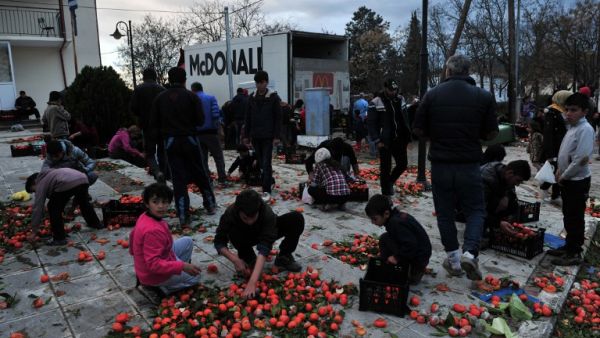With the door still firmly shut to thousands of migrants and refugees on the Macedonian border, the UN and aid agencies are warning of a looming humanitarian catastrophe in Europe.
“As we speak, there are an estimated 42,000 migrants on Greek soil,” said Euronews' Athens correspondent Stamatis Giannisis.
“Some 12,000 of them are at the Idomeni camp on the Greek-Macedonian border while 10,000 are still in the eastern Aegean islands."
As Europe scrambles to shut down the so-called Balkan migration route, migrants and refugees have continued to arrive unabated on Greek shores, in hopes of reaching the border in time to continue on to wealthier northern European countries.
After Macedonian authorities severely restricted its borders with Greece, allowing in only a few hundred per day and blocking most nationalities or those without passports, a massive buildup began in the makeshift Idomeni camp.
Tens of thousands of migrants - from newborns to the elderly - sleep in cold, muddy tents, with limited access to food or healthcare.
Meanwhile, the Greek government has said it has the capacity to shelter at least 30,000 migrants, but most hesitate to use these facilities, in fear that they may be arrested or prevented from continuing their journey to northern Europe.
A recent deal between Turkey and the European Union puts forth plans to return migrants to Turkey after they arrive in Greece, in hopes of deterring more from boarding boats from Turkish coasts. In exchange, Turkey has demanded some $6 billion in support through 2018 from the EU and visa-free travel to Europe for Turkish nationals.
European Parliament President Donald Tusk said the deal would show migrants that there was no longer a path to Europe for those seeking a better life.
In a joint news conference with Turkish Prime Minister Ahmet Davutoglu, Tusk said, "The days of irregular migration to Europe are over."








